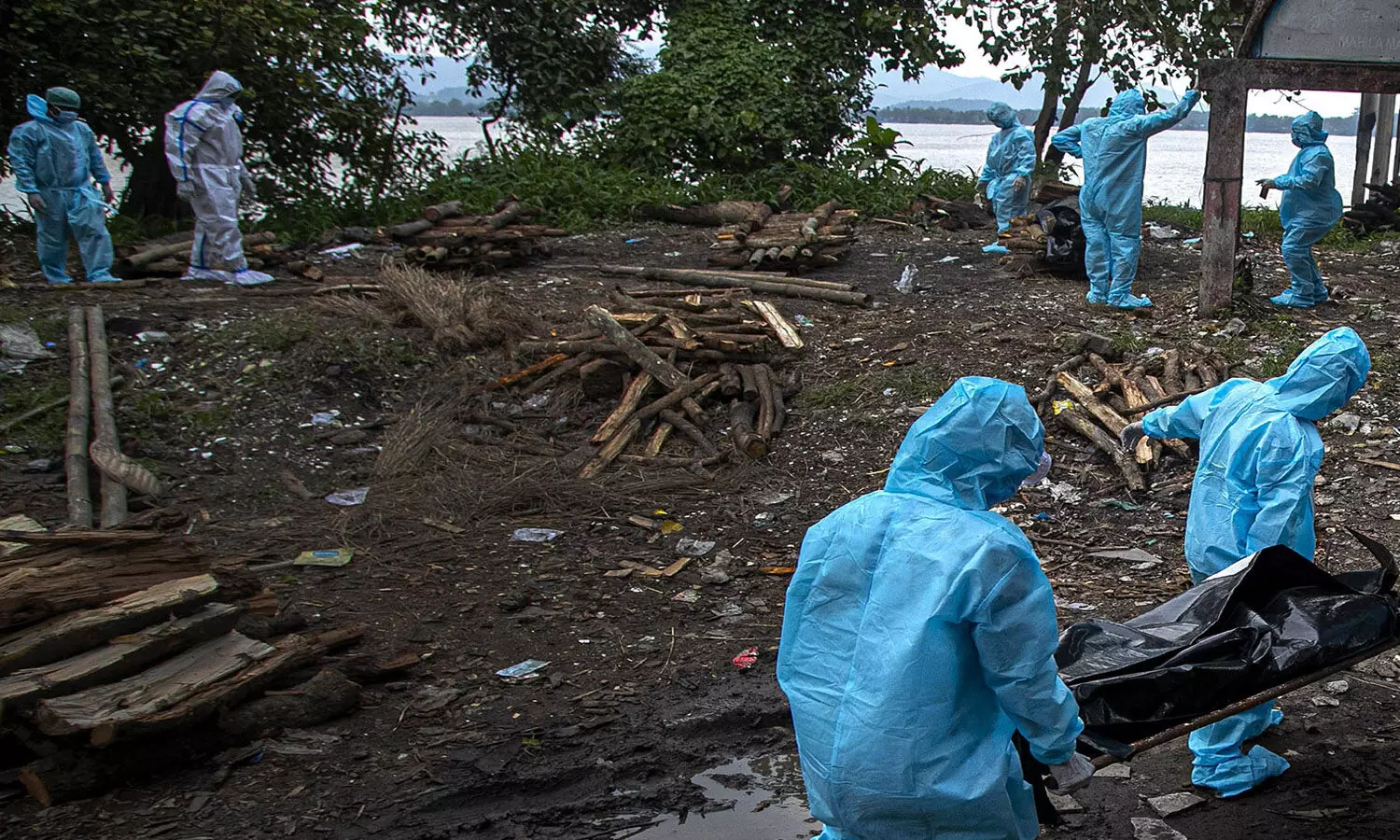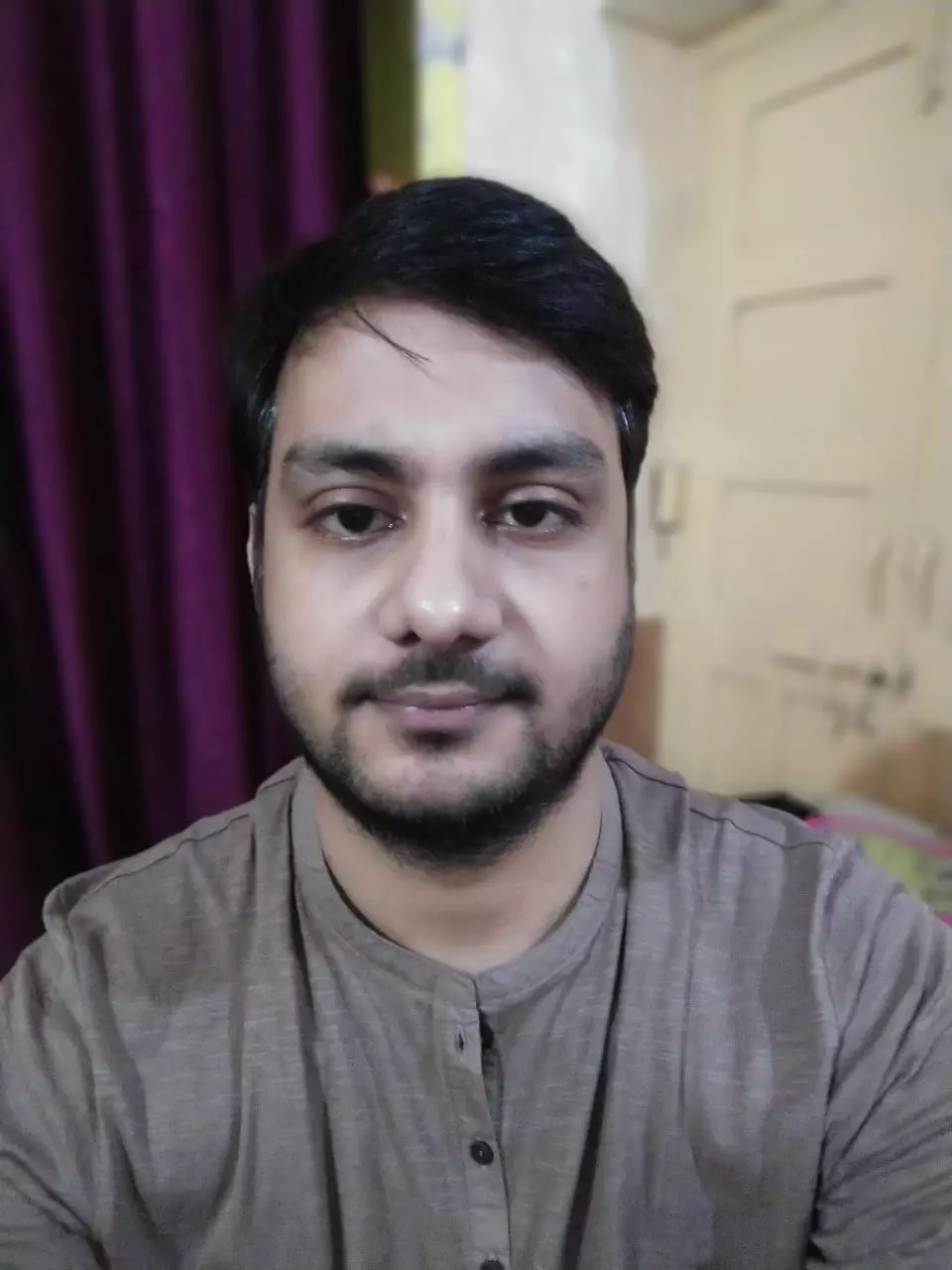TRENDING TAGS :
Is a PIL & NHRC guidelines enough to ensure the dignity of corona deceased?
Disturbed people are not shying away from releasing the bodies of their loved ones into hospitals or flowing into rivers in this hour of disaster, which is why there is a demand in the courts to protect and uphold the rights of the deceased by filing public interest petitions.
During the corona pandemic, people are suffering a lot in cremating infected people and transporting bodies to cremation. Despite all precautions, the arbitrariness of ambulance drivers and those who complete the process of religious customs is not hidden from anyone. The fear of transition is not even getting along with society.
Disturbed people are not shying away from releasing the bodies of their loved ones into hospitals or flowing into rivers in this hour of disaster, which is why there is a demand in the courts to protect and uphold the rights of the deceased by filing public interest petitions.
There is no special law to protect the rights of the deceased in India. The Supreme Court, in a 1989 case of Paramanand Katara vs. Union of India, said that the right to life, treatment and dignity is applicable not only to the living person, but also to his dead body.
They have this right under Article 21 of the Indian Constitution. Complaints of arbitrariness of ambulance operators in transporting bodies during the Corona pandemic and overcharging in cremation or cemetery during funerals have increased considerably in the second wave and now the speculations are here for the third wave.
The relatives are being charged many times more than the prescribed norms. The family members who are hurt by the fear of infection and the release of loved ones are forced to endure everything. Such reports have often made media headlines in almost every corner of the country, including the capital Delhi.
A public interest petition has been filed in the Supreme Court on the same issue seeking the court to direct the Central Government to advise the States and Union Territories to issue guidelines and ensure compliance in this regard at the earliest.
Strict action should also be provided against those who do not comply with the guidelines. The petition said it is painful that due to lack of money, people are pouring the bodies of their relatives into rivers like ganga. The initial reason for this is the high demand for ambulance services and funeral services. It has also been said that the National Human Rights Commission (NHRC) has also issued an advisory to protect the rights and dignity of the deceased. But no concrete action has been taken in this regard so far. The court was asked to issue directions to the Centre and states and Union Territories to formulate a policy at the earliest to protect the rights of the deceased. The petitioner had also filed a petition in the Delhi High Court on the issue. The National Green Tribunal (NGT) has also asked to consider a demand for a policy to burn the unclaimed bodies of those who died of corona, especially in gas crematoria.
The National Human Rights Commission has issued a special guideline during the Corona period on protecting and maintaining dignity of the rights of the deceased. It says that posthumous recognition of legal rights provides important moral status within the Indian law system to dead people. The law also seeks to respect the wishes of a deceased and protect his interests.
It is the duty of the state to protect the rights of the dead in both natural or unnatural deaths and to prevent crime on the dead body. It is important that the State and Union Territories prepare an SOP to ensure the dignity of the deceased and protect their rights.
Some basic principles have also been laid down for this, including no discrimination against the body, no physical abuse, decent burial or cremation in a civilised manner and timely, justice in case of death due to crime, fulfillment of legal will, any value after deathThere is talk of not doing any action and not violating privacy.
In addition, responsibility has also been clearly fixed for all components of hospital and police administration; the commission's recommendations emphasize the need to enact specific laws to protect the rights of the deceased. In view of the long queue of bodies in the crematoriums and the large number of corona deaths, temporary arrangements have been made to avoid undue delays. Employees working in crematoriums or cemeteries have been asked to provide proper payment and necessary facilities and safety equipment and provide sanitization. The Commission has asked not to allow mass funerals or cremations as it violates the right to dignity of the deceased. It has been recommended to ban arbitrary recovery and regulate fees, especially for transportation of dead bodies from corona, so that there are no difficulties in transportation of dead bodies and people are not exploited. Let's hope that the lessons of two waves can ensure a respectful cremation.
Stay tuned with the newstrack to get fastest updates. Click @englishnewstrack to follow us on Facebook and @newstrackmedia to follow on Twitter.



